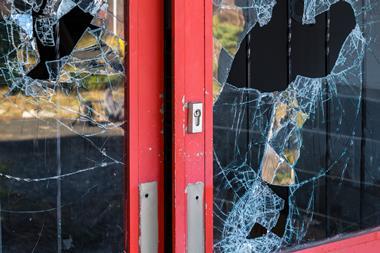Keep Britain Tidy’s Helen Bingham joins the C-Store Champions to discuss the importance of taking care of your local area.
Lesley Brown, Frankmarsh Stores, Barnstaple, Devon
After a two-year stint as town mayor, Lesley has firmly cemented her links with the community.
Dee Sedani, two stores in Etwall and Matlock, Derbyshire
He has already organised a litter pick and now Dee is planning to work with local schools.
Dean Holborn, two stores in Redhill and Nutfield, Surrey
Community regeneration is at the centre of both of Dean’s stores and something he feels strongly about.
Helen Bingham, communications & PR manager at Keep Britain Tidy
Helen is keen to spread the Love Where You Live message. Wrigley is a founding partner of the campaign.
Why is it important to keep your store and surrounding area tidy?
Lesley: Because it creates the wrong impression if the area is unkempt. Also, I live above the shop so am a resident of the area and from a personal point of view wouldn’t want the heart of where I live to be untidy and run-down.
Dee: It’s about taking pride in what you do. We don’t have to do it, we want to. If the store and surrounding areas are clean, tidy and professional then it means people will want to shop there.
Dean: Wherever you go you see rubbish and most of the products we sell are ‘eat now’ items, so they are going to have rubbish attached to them. If there’s rubbish around it’s the first thing that customers see and their first impression of the store.
Helen: It is important because it matters to your customers. We know people want to shop, live and play in clean, tidy areas; people feel safer and happier in litter-free areas. A recent Keep Britain Tidy survey revealed that a third of people in England would be less likely to buy from a company whose packaging they saw littered, and eight out of 10 people thought businesses should do more to prevent litter. Retailers in littered areas are likely to lose out on custom from people and tourists shopping or visiting elsewhere.
How do you decide on the best way to help your local area?
Lesley: You respond to what people say they want you to do. Litter was always a high priority for the area, and weeds too. We also help out different community groups when we can.
Dee: The key thing is to ensure that the local community know that you’re doing something, so ask them what help they need.
Dean: We live in the area as well as work here and people come to us when they want to address any issues. For example, if there’s a damaged curb stone we’re usually the first port of call. People could ring the council themselves, but they prefer to tell us and then our staff will follow it up. We’ll take a photo of the problem and send it to the council.
Helen: You, your staff and your customers know your local area better than anyone else. Talk to your customers, see which issues bother them the most and whether they’d like to get involved with helping you to tackle it. If you share your local area with other businesses could you talk and work together to make a bigger impact than you would be able to yourself? What else is already going on in your local area? Could you help an existing community group or take the first steps to starting one?
What are the expenditures involved in helping to improve your local area?
Lesley: In terms of how much time it takes, I have good staff and they’ve been with me a long time so each time we have a project a different member of staff will head it up. It doesn’t cost much money to do community work. The litter pickers weren’t expensive, about £10 each. With the last litter pick the local Housing Association laid on pasties for everyone. You have to be a little on the cheeky side and ask people to help.
Dee: If it’s good advertising for your business then it’s money well spent, although I haven’t got the money I used to for community work. I had someone request help with football kit sponsorship and I had to think about whether it will advertise the business. In the end I decided to fund half and let them come up with the rest.
Dean: It’s not always a lot of money to get involved in these things, it’s mainly time that you have to give. But I don’t mind staff spending time emailing the local authorities, or helping at events if it results in us having a nicer environment.
Helen: This depends on what you’d like to do, but the expenditures can be minimal. For example, if you’d like to organise a community litter pick, Keep Britain Tidy’s Big Tidy Up can provide you with free bags, tabards, posters, stickers and, most importantly, advice, while many local councils can help by loaning litter pickers and removing the rubbish you collect. You could also consider donating your time, allowing your staff to donate their time, or donate in kind. If you organise a community litter pick, perhaps you could provide a drink to everyone who gets involved in helping out on the day. If you want to promote an anti-litter message, you can order a range of free posters and other materials directly from Keep Britain Tidy by visiting www.keepbritaintidy.org.
How has your involvement in community regeneration benefitted the local area?
Lesley: I think it helps when the community sees local residents helping out. I am very involved in trying to keep our area tidy and I believe that it helps not only to keep the area looking nice, but improves the community aspect of the town.
Dee: Local people know that they can come to us when they need us. We always support the community where we can.
Dean: Having events outside the store has brought people together and it’s made the store a hub. We’ve even had a case where a woman was attacked and she came to the shop to seek refuge. That was an extreme case, but it shows that people really do rely on us.
How has your involvement in community regeneration helped your business?
Lesley: I think it has reduced crime as if a shop looks run-down people think that they can get away with stealing because the owner doesn’t care.
Dee: If you get exposure for supporting the community then it enables your business to stay at the forefront of people’s minds. There isn’t any long-term loyalty these days, but if people keep seeing your brand then they are more likely to shop with you.
Dean: We like to think there’s less crime as a result of our community work because people respect you and also earn people’s loyalty. We get parents shopping here because we support their kids at school or Scouts. One of the key reasons we do so much community work is because it keeps us ahead of the competition. I’d rather see our banner up at a local event than another shop’s.
Helen: The Spar Magdalen Road litter pick that Wrigley organised helped the store to build links with the local community, which encouraged shopper loyalty. The event was also covered in the local paper, which helped to raise awareness of the store.
What new community regeneration projects do you have planned?
Lesley: At the end of the month we are getting together with the Housing Association. They will pay for the hire of some skips in which residents can throw away any unwanted furniture or rubbish. We will also do some weeding, hedge trimming and bench painting.
Dee: In Matlock we’re going to give the local primary school fruit and veg as part of an educational project, and then we’ll look at working on a milk initiative with them. We’re also going to speak to the local MP to find out what else we can do.
Dean: We’ll carry on supporting groups in the local community. Also, with the Redhill store there are issues with the paving near the shop, so we’re speaking to the council about fixing it.
Do you think that the number of retailers involved in these types of projects is growing?
Lesley: I’d like to think it is. We couldn’t cope without the school kids, so we need to take care of the local area and support the school.
Dee: It depends on the location. Rural stores are more likely to take on community projects, whereas if you’re in a city location it is less beneficial.
Dean: Yes, it’s almost expected of you as a local retailer.
Helen: Retailers are recognising the value of getting involved in community projects and helping to tackle litter. Companies such as Wrigley, which is a long-term supporter of the Love Where You Live Campaign, have long been raising awareness of the importance of caring for the community and have worked with a number of retailers to help them tidy up their local areas.
How should retailers go about getting involved in projects to improve their local area?
Lesley: They can start with the school and community groups and sports teams. Just ask what you can do to help. Or you can just start with a flyer telling people that you are planning a litter pick and barbecue.
Dee: I’d advise retailers to work with their local MPs and ask them what needs doing in the local area.
Dean: Talking to local schools is the best way to get started. Get in touch with the Parent Teacher Association and ask if there’s anything you can do to help.
Helen: It doesn’t matter if you start small - every individual and business can make a difference. See what is already going on in your local community and approach the organisers to see how you can help. If you feel an area around your business needs a litter pick, organise a Big Tidy Up and approach others to get involved. Tell your customers about your plans, you might be surprised by the offers of help. By working with other local businesses, together you’ll be able to make an even greater impact.
What have you and our staff done over the past year to help improve your local area?
Lesley: Several years ago we purchased some litter pickers and distributed these to local children and residents. We also have street champions on each road who are responsible for keeping their street clean. It has been an ongoing system and seems to still be working. We’ve also worked on joint projects in the woodland where we planted trees and then raised funds for a picnic table.
Dee: The local council said they’d like hanging baskets so we helped to fund them, and last year we organised a litter pick.
Dean: Both of our shops are absorbed in the community, supporting various projects. The schools come to us and ask for help, as do community groups.
Helen: We work with independent retailers across England, helping them to clean up their local areas. For example, we helped with a litter pick that Wrigley and C-Store organised with Spar Magdalen Road in Exeter, which involved the local councillor, shop workers and school kids all working together to tidy up the town.
How do you ensure that your store and surrounding areas are kept clean?
Lesley: I go out regularly and put stray litter in the bins. We also have a recycling system so if there are cans on the floor we would recycle those. We have a paved area outside the store so we are careful to look after that and keep it free from weeds, otherwise it can cause drainage problems.
Dee: We keep a jobs list and on it will be tasks such as tidying the car park daily and cleaning the windows once a week. As we recycle cardboard we have to store it in cages outside, which can be a bit of an eyesore, but we explain to customers why it’s there and that they can recycle their own boxes there if they wish, and they’re happy with that.
Dean: We always sweep outside the front of the store. Customers can sit outside the Nutfield store so you want it to be a nice environment. Unfortunately, we frequently find cigarette butts, but staff tidy them up promptly.
















![C-Store_Champions_logo-CHOSEN[1] 2023](https://d2dyh47stel7w4.cloudfront.net/Pictures/380x253/6/5/7/301657_cstore_champions_logochosen12023_817064.jpg)




No comments yet